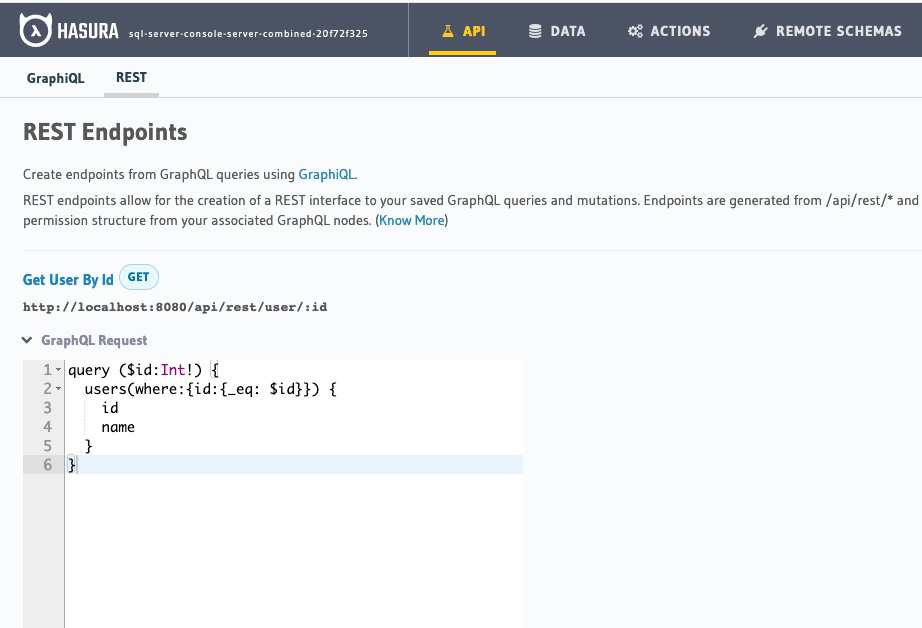| Hasura GraphQL Adds REST Support |
| Written by Kay Ewbank | |||
| Tuesday, 02 March 2021 | |||
|
The open source Hasura GraphQL Engine has been updated with improvements including support for using REST and a GraphQL API gateway. Hasura’s GraphQL Engine automates the implementation and linking of databases to the graph. The APIs can be used to choose tables from new or existing databases for use with GraphQL and link those existing tables into a graph.
The engine has built-in authorization and authentication with granular authentication and a dynamic access control system that integrates with existing authentication systems such as Auth0 or custom implementations. The Hasura team says there area number of areas of improvement, starting with the ability to connect multiple databases simultaneously and make database support more general. Hasura was originally launched with exclusive support for Postgres, but Hasura 2.0 allows developers to use multiple databases simultaneously to a single instance of Hasura GraphQL engine (or a scaled up cluster of Hasura instances). The new version also adds support for SQL Server and the BiqQuery OLAP database.
The next improvement is support for REST endpoints. This has been added in recognition that GraphQL fragments and Relay style GraphQL are not as popular as they ought to be, and the team acknowledges that the cost of maintaining a GraphQL API and simultaneously a REST API is ridiculous. Hasura 2.0 allows users to create idiomatic REST endpoints based on GraphQL templates. Hasura uses GraphQL as an intermediate representation and converts a RESTful request with its parameters to a parametrized GraphQL query and then executes it, with minimal overhead. Elsewhere, the authorization engine has been improved and features authorization on remote GraphQL services including role-based schemas and preset-arguments.
More InformationRelated ArticlesOpen Source GraphQL Engine Launched GraphQL Foundation Gets Bigger Facebook GraphQL Gets Own Foundation Graphcool Eases Your Way Into GraphQL To be informed about new articles on I Programmer, sign up for our weekly newsletter, subscribe to the RSS feed and follow us on Twitter, Facebook or Linkedin.
Comments
or email your comment to: comments@i-programmer.info |
|||
| Last Updated ( Tuesday, 02 March 2021 ) |



